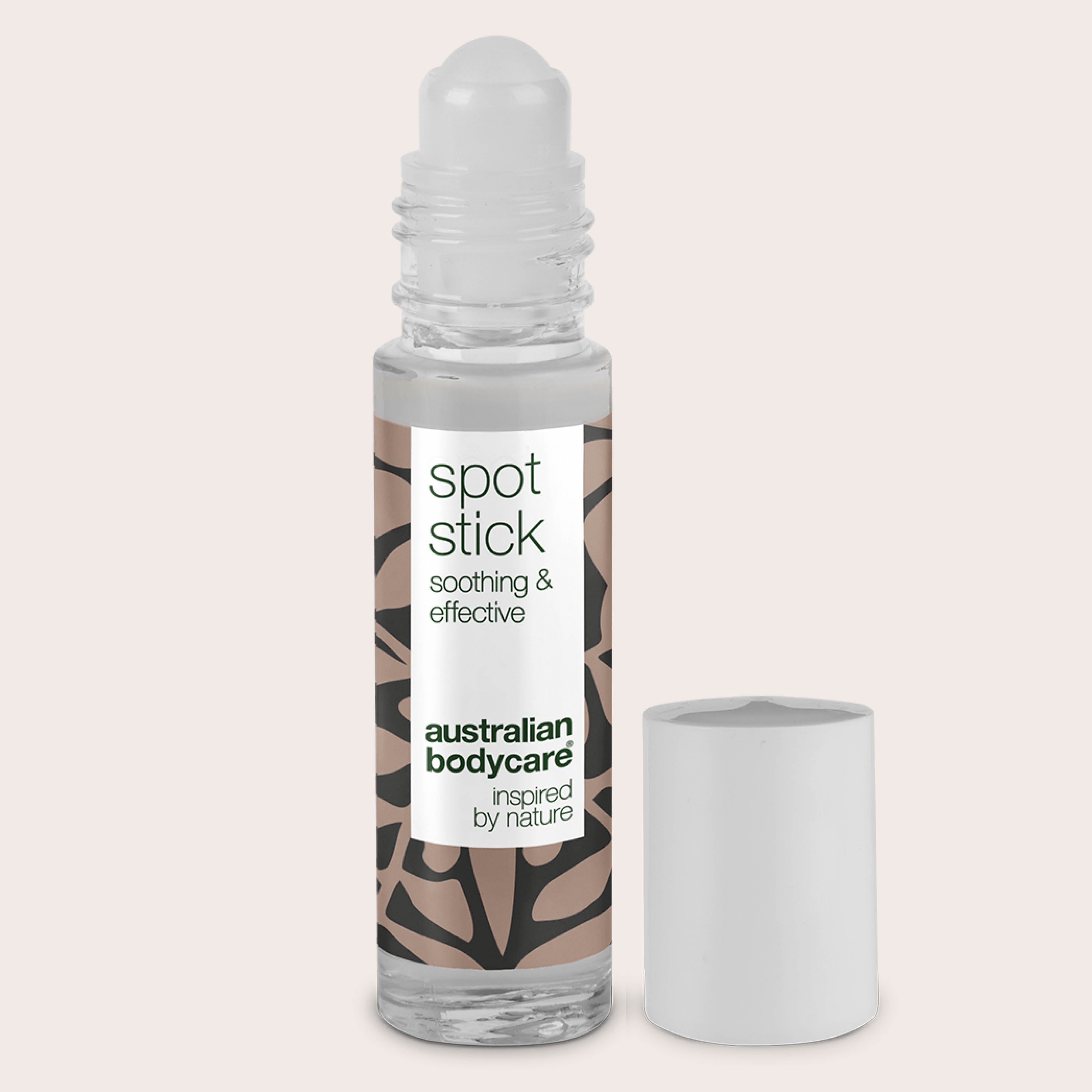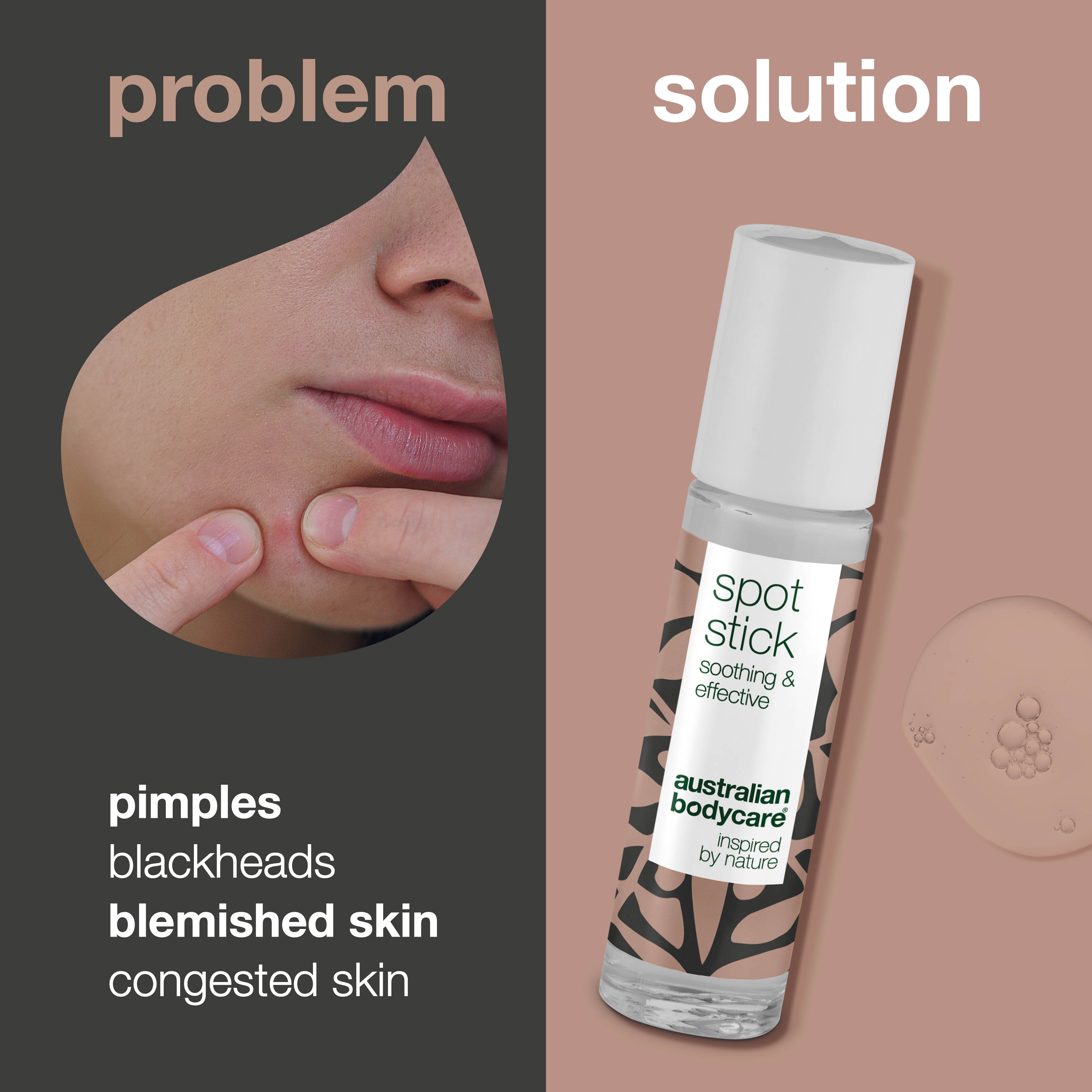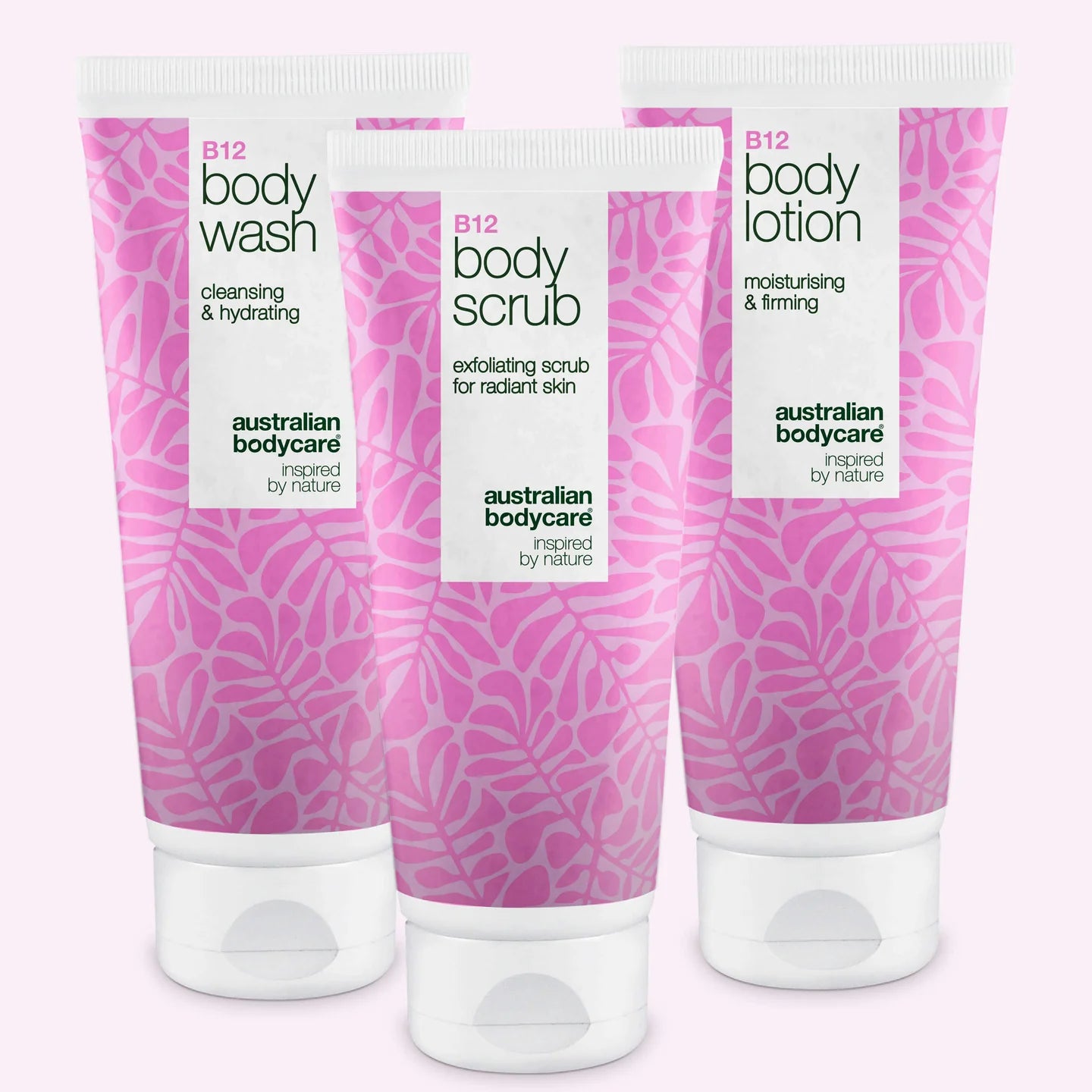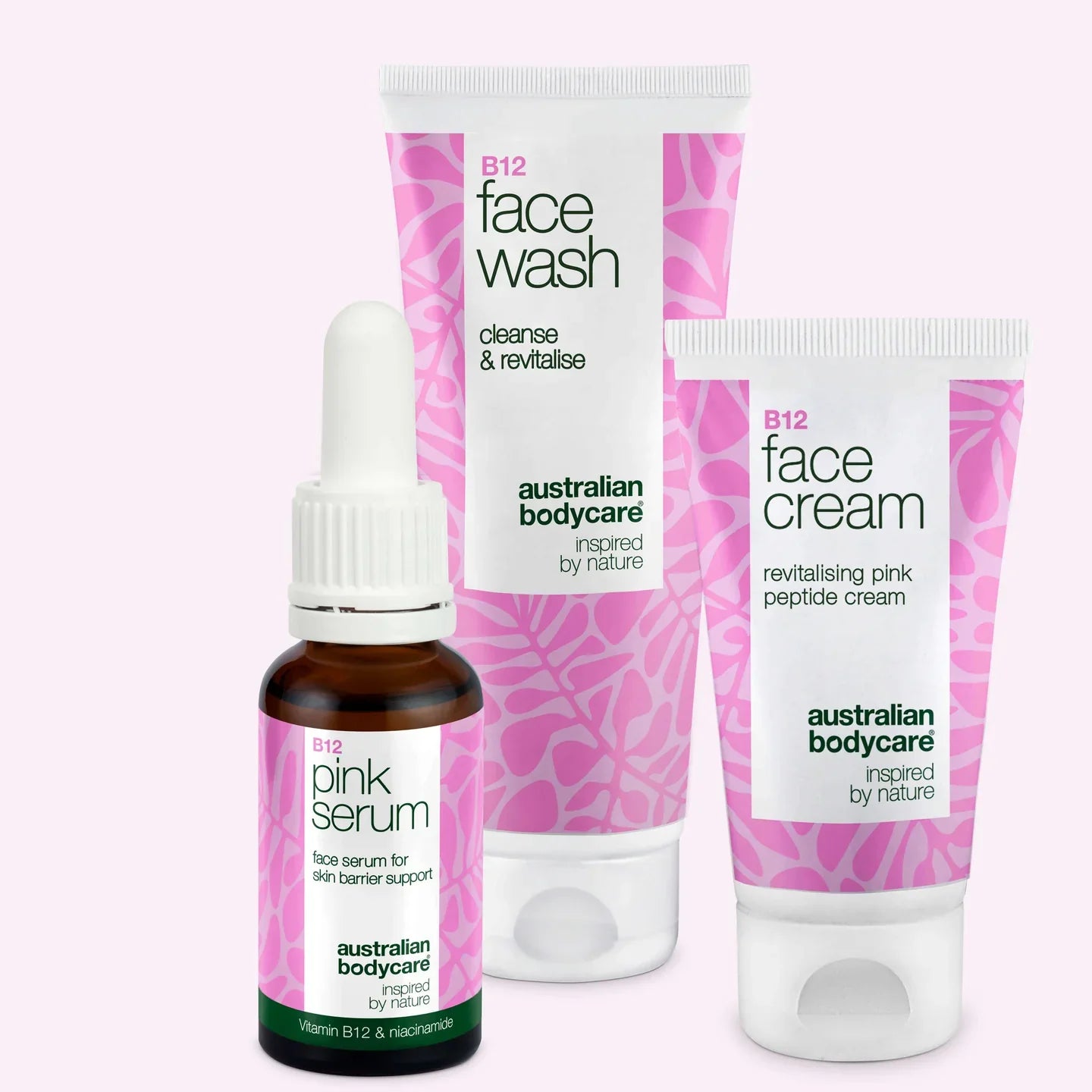Cold sores - How to treat and prevent cold sores
Table of contents
What are cold sores and who can get it?
Anyone can get cold sores and the majority of the adult population (estimated at around 80%) already have the herpes virus in their body. Children can also get cold sores, and often people actually get the herpes virus in their bodies as children, typically between the ages of 1-5 years.
Cold sores are a highly contagious skin and mucous membrane disease caused by infection with the herpes simplex virus (HSV). Cold sores are caused by infection with herpes type 1, also known as HSV-1 or herpes labialis. This is the type of herpes that can cause infection on and around the lips, but also in the mouth, throat, neck, eyes, nose and chin.
Cold sores are highly contagious and are transmitted by direct contact with skin or mucous membranes. Once a person has a herpes outbreak, the herpes virus will remain dormant in the nervous system for the rest of their lives. The virus can then be 'awakened' a few or many times throughout life, resulting in new herpes outbreaks. Unfortunately, there is no cure or vaccine against the herpes virus, but you can be aware of what you can do to prevent new outbreaks and treat the symptoms of outbreaks, and of course you should take care not to pass the infection on to others.
In addition to herpes labialis, genital herpes is also a very common herpes disease. It is also known as HSV-2, or genital herpes, and causes infection of the skin and mucous membranes on and around the genitals. Finally, there is herpes zoster, which is the Latin name for shingles, a very painful skin rash.
What are the symptoms of cold sores?
The symptoms of cold sores are the same wherever they are: small clear fluid bumps (blisters) on the skin or mucous membranes. They can be on and around the lips, in the mouth, throat, chin, nose and eyes. The blisters will be tender and painful. They will feel like they are burning and stinging. The blisters will turn into sores and then scabs that fall off in a few days.
It takes quite a while for the skin to return to normal and look nice again, as the sores have to heal and the scabs have to fall off.
You will never get rid of your herpes virus, but the frequency of outbreaks varies greatly. For the lucky ones, it will only happen a few times in their lives, while others are constantly plagued by new and bothersome herpes outbreaks.
There can be many different reasons for new outbreaks, including stress, a weakened immune system (for example, just a cold or flu), fever, bright sunlight and, for women, menstruation.
Cold sores are highly contagious and are transmitted by direct contact with skin or mucous membranes. Once a person has a herpes outbreak, the herpes virus will remain dormant in the nervous system for the rest of their lives. The virus can then be 'awakened' a few or many times throughout life, resulting in new herpes outbreaks. Unfortunately, there is no cure or vaccine against the herpes virus, but you can be aware of what you can do to prevent new outbreaks and treat the symptoms of outbreaks, and of course you should take care not to pass the infection on to others.
In addition to herpes labialis, genital herpes is also a very common herpes disease. It is also known as HSV-2, or genital herpes, and causes infection of the skin and mucous membranes on and around the genitals. Finally, there is herpes zoster, which is the Latin name for shingles, a very painful skin rash.
The first and following infections
The first infection with HSV-1 is called a primary infection. The first infection will typically be the worst and, in addition to the blisters, it can cause sores and blisters in the mouth, fever, headache and body aches; i.e. flu-like symptoms. The first infection can last up to 14 days.
Subsequent outbreaks will typically last shorter, perhaps 2-7 days, and will be much milder. Often the only noticeable sign of the outbreak is a visible and uncomfortable cold sore or cold sores on or around the lips or elsewhere on the face or neck.
Most people recognise the outbreak a little before the cold sore becomes visible by the tingling, burning and stinging of the skin. If you've had it before, you'll know what's coming. Often the cold sore will appear within just a few hours. It's important to get treatment right away so you can minimise the extent of the outbreak.
Cold sores on the lips
Most people associate cold sores with visible blisters and sores on and around the lips. In 9 out of 10 cases, this is where you see cold sores.
You can have a single blister on your lip, but you can also have a large cluster of blisters. Obviously, having many blisters is more painful, more severe and more visible than having just one. However, both are equally normal.
Cold sores in the mouth and throat
The herpes virus HSV-1 can also affect the mouth (oral cavity, gums and palate), tongue and down the throat. Just like on the lips, the symptoms here are painful blisters and blisters. However, cold sores are most commonly found outside the mouth on the lips, so most blisters in the mouth are not caused by cold sores, but by something else.
Cold sores on the chin or nose
Cold sores can spread to the skin on the chin or on top of the nose or into the nose, where there are also mucous membranes. Again, the symptoms are fluid-filled blisters, often in small or large clusters.
Cold sores in the eyes
The herpes virus HSV-1 can also affect the eye area (cornea and other parts of the eye), where symptoms typically include red eyes, pain, discomfort and blurred vision. In the worst case, it can lead to corneal inflammation, which can lead to visual disturbances or blindness.
How are cold sores passed on?
Herpes and cold sores are highly contagious. Many people have already contracted the herpes virus as children. Typically, this happened when an adult with cold sores kissed the child. It may also have happened when an adult with a cold sore picked at the sore and then, with the virus on their fingers, touched the child.
Cold sores are transmitted by direct contact through mucous membranes or cracks in the skin. You can be infected both when herpes is in an outbreak and when herpes is 'dormant'. However, the risk of infection is definitely highest when there are blisters and sores. During the resting period, the risk of infection should not be very high.
It is important to be extra careful with hand washing when you have an outbreak of cold sores. If you forget to wash your hands after touching a cold sore on your lips, for example, and then pick your eye, nose or chin, you could risk spreading the infection to those areas.
Cold sores cannot be transmitted through blood. Nor can you get infected by sharing a towel or drinking from the same glass as someone who has a cold sore. So there must be direct skin-to-mucous membrane contact.
Children and adults with atopic eczema (also called childhood eczema) have poor immune defences against viruses and bacteria in their skin. They may therefore be particularly susceptible to cold sores.
Cold sores on the lips
When you have an outbreak of cold sores on your lips, you should avoid kissing to avoid spreading the infection. And if you don't have cold sores yourself, you should of course avoid kissing someone with an outbreak of cold sores so that you don't risk getting infected.
You should also avoid oral sex when you have an outbreak of cold sores, otherwise you could pass the infection on to your genitals. And you should avoid having oral sex with someone who has genital herpes. Otherwise, you risk getting infected with herpes, which can lead to cold sores.
Cold sores in the mouth and throat
Cold sores can spread to the mouth. Typically, you have been infected - and can pass it on - in the same way as cold sores on the lips: by kissing and touching.
Cold sores on the throat can be caused by oral sex with a man who has genital herpes.
Cold sores on the chin or nose
If you get a cold sore on your nose, inside your nose or on your chin, it is usually because you have picked a cold sore on your lips, forgotten to wash your hands and then picked your nose or the skin on your nose or chin.
The most important thing to avoid infection is to take extra care to wash your hands when you have a cold sore outbreak.
Cold sores on the eyes
Cold sores on the eyes will typically occur because you have picked your eye after picking a cold sore on your lips - and forgot to wash your hands beforehand.
Cold sores treatment
As mentioned above, cold sores and other types of herpes cannot be cured, as there is no treatment or vaccine for herpes yet, but the symptoms can be treated.
The most common treatment is to use a cold sore ointment or cream containing Aciclovir. It is important that you apply the ointment as soon as you can feel an outbreak coming on. If you have had cold sores a few times, you may notice the symptoms of tingling, burning and soreness in your lip. By starting treatment early, you can minimise the outbreak.
If you start treatment early, you can reduce the size and duration of the outbreak. You may be lucky enough to avoid blisters from developing in the first place.
In addition to cream/ointment, there are small patches that treat the cold sore and can help to conceal the sore.
For particularly severe cases of cold sores or frequently recurring outbreaks, you can try a tablet treatment. You will need a prescription from your doctor. A course of tablets cannot cure cold sores, but they may mean that you have fewer and milder outbreaks.
Tea Tree Oil
If you experience a tingling and stinging sensation in the skin, a spot stick containing Tea Tree Oil is effective in relieving this sensation. In addition to the spot stick, you can use a face wash containing tea tree oil as a preventive measure. Remember not to pick at the cold sore as you can spread the infection elsewhere on your body and risk infecting the wound with bacteria.
Read More: Tea Tree Oil and cold sores
How can you prevent cold sores?
If you do not have a cold sore, it is important to avoid getting infected. You can do this by avoiding kissing someone who has cold sores unless you have them yourself. And by not having oral sex with someone who has genital herpes.
If you already have the herpes virus HSV-1 in your body, it is important to prevent new outbreaks of cold sores. These outbreaks can have many different causes, including stress, a weakened immune system (for example, just from a cold or flu), fever, illness, severe cold, bright sunlight and, for women, menstruation are known to contribute to new outbreaks.
Unfortunately, you can't do much about most of these causes. However, you can try to avoid stress, do what you can to avoid colds and illness, and avoid extreme cold and sunlight.
One of the things you can do is to strengthen your immune system. You can do this by living and eating healthily, drinking plenty of water, getting enough sleep, exercising and avoiding stressful situations.
Very few of us live a healthy lifestyle all the time and eat enough vegetables. So, of course, you can go the extra mile to remember to eat your healthy veggies. In addition, you could consider taking an extra vitamin supplement. Vitamins B, C and D are mentioned as particularly important in this regard.
Make sure you take good care of your lips and the skin around your mouth with a good lip balm and moisturiser. Cracked and dry lips provide easier access for a new outbreak of cold sores. Find a good lip balm - it's worth the investment. Face creams and face balms containing tea tree oil keep lips in good condition.
Finally, it's important to practise good hand hygiene when you have a cold sore - otherwise you risk infecting yourself elsewhere on your face or infecting others. So when you've picked a cold sore on your lip or applied ointment to a wound, it's very important to remember to wash your hands afterwards.







